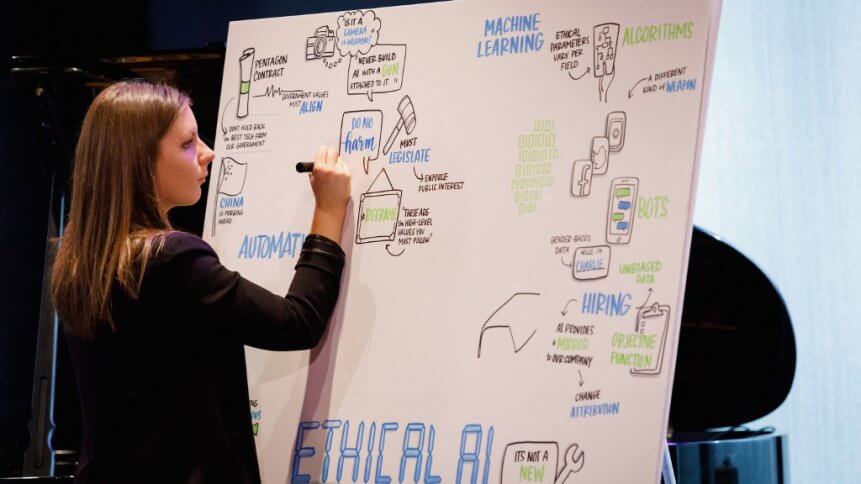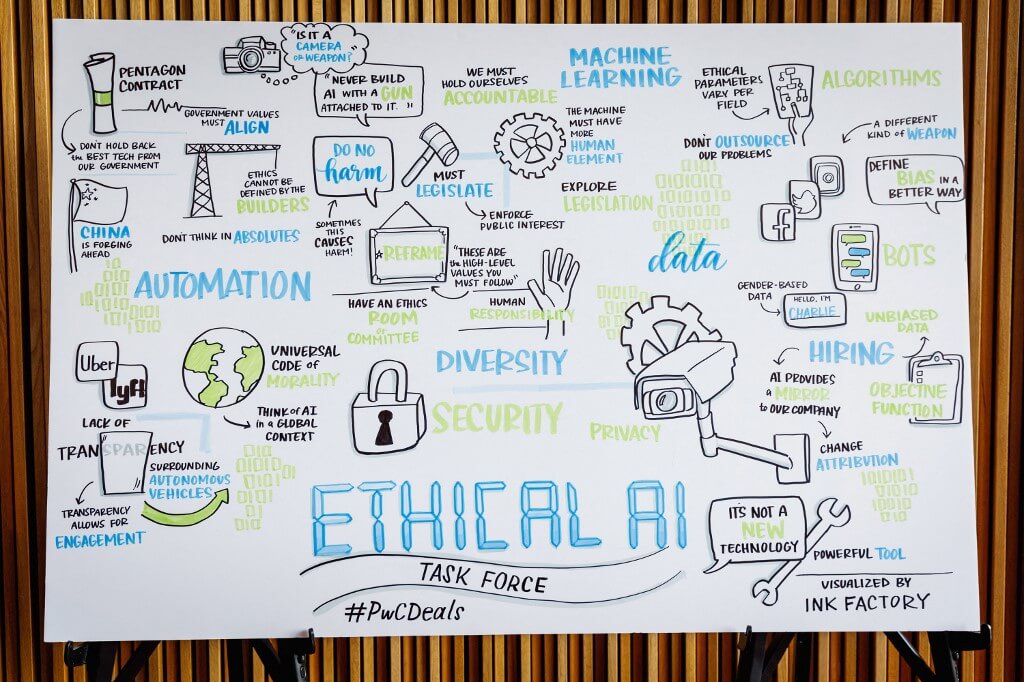
The expansive role that artificial intelligence (AI) can play is being valued on a global stage for its transformative merits, in plenty of industries, to improve efficiencies and outcomes. But there are also ethical questions around the responsible use of AI for a globalized society, governed by a respect for human rights and democratic principles.
Powerful AI-driven technologies have the potential to be misused, and there have already been numerous studies on AI displaying bias towards certain skin shades, amplifying discrimination against women, and members of marginalized ethnic groups. Minority groups often become the unwitting victim of ethical AI conundrums, in large part because machine learning works best off large subsets of data, with the majority of input data coming from, well, the majority.
While these AI-driven discrepancies are well-recognized, the power of AI as a transformative force for societal good is also coming to be well-regarded, with research from the Pew Center indicating that over half (53%) of people from 20 countries surveyed saying that artificial intelligence has had a positive effect on society. Many nations have industries currently being changed by AI, and many more have made AI a pillar of their national digital transformation plans, signaling how key the technology could be.
With deeper emphasis on a technology that is literally altering the operational capabilities of many sectors, leading voices in the AI fraternity including top AI innovators like China, the US and India realized the importance of guiding ethical doctrines for AI, back in 2019. In mid-2019, the Organization for Economic Co-operation and Development (OECD) released its Recommendation on Artificial Intelligence, and the OECD AI Principles came to be the first governing standard recognized internationally.

A poster about ethical AI considerations during the 2018 New York Times Dealbook. (Photo by MICHAEL COHEN / GETTY IMAGES NORTH AMERICA / Getty Images via AFP)
“OECD.AI is an inclusive hub for public policy on AI that helps countries encourage, nurture and monitor the development and use of trustworthy AI,” wrote digital cognitive strategist and VC, Mark Minevich, in Forbes. OECD.AI is a collective of over 150 global AI experts debating common AI policy opportunities and challenges, with a shared common purpose of advancing trends related the ethical implementation of AI.
“From the measurement of AI trends and developments to the direction and impact of national and regional AI policies and initiatives, OECD.AI is a prime example of how to move the AI discussion from principles to practice,” Minevich says.
The strategist and CTO also pointed out how national AI policies are not often not reflective of a comprehensive picture to holistically integrate AI – and that the best way to maximize the harnessing of this groundbreaking tech was to have open dialogue and visionary-led discussions on the potential impact and global reach of intelligent technologies.
“This global reach is necessary to unlock policy solutions that leave no one behind,” Minevich wrote. “In the case of AI policy, inclusiveness is key to mitigating some of the risks posed by AI systems and increasing awareness about the technology’s potential for good.”
Collaboration and frank exchanges of information between different regions and stakeholders is what might provide a 360-degree perspective on ethical AI adoption, driving real-world results and effecting actual changes rather than purely theoretical, which provides the best means to unlock the full potential of this fledgling technology for countries and entire sectors which might come to depend on it, in the coming decades.
“The Covid19 pandemic showed that governments matter as does their ability to innovate, especially in AI,” asserts AI expert Minevich. “Without winning the popular sentiment and developing trust on a national level with the help of OECD.AI, AI may continue to be the subject of controversy and possible extreme legislation that could potentially limit or eradicate the use of AI altogether.”
With the substantial amount of digital transformation efforts occurring on a global right now, there is clear gap for fair and balanced awareness on ethical AI development and progress, driven by participation from all quarters to ensure that people’s rights are not held back in any way, while also giving due attention to the various AI systems out there, as well as the myriad scenarios and challenges each is faced with.









